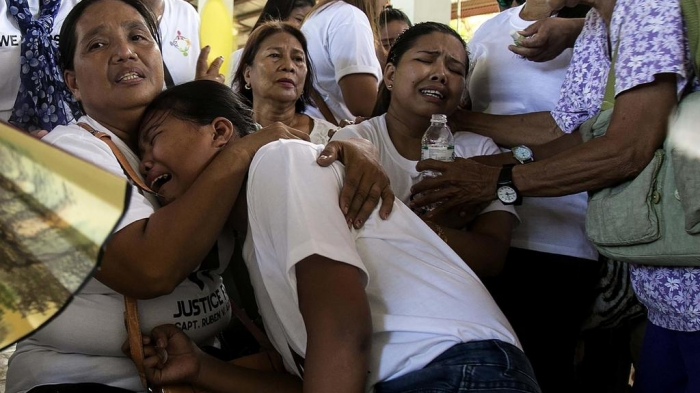At least 164 land and environmental activists were murdered in 2018 for protecting their homes, land and resources from business interests, a report published by the Global Witness said.
The overall homicide rate in 2018 fell from a peak of 207 in 2017 as indigenous groups, NGOs, the United Nations and the media put a spotlight on these issues, a watchdog group stated.
Brazil has been replaced by the Philippines, which is one of the deadliest countries for the land and environmental defenders with 30 murders in 2018 under the leadership of President Rodrigo Duterte.
“In 2017, his administration announced plans to allocate 1.6 million hectares of land to industrial plantations, most of it on the island of Mindanao. This region has also become a hotspot for murders of land and environmental defenders, accounting for 67% of the total killed in the Philippines in 2017 and a third in 2018”, the report highlighted.
Globally, in 2018, the deadliest sector was mining which led to the killings of 43 activists who protested against the environmentally destructive mining plantations. Therefore, Brazilian President Jair Bolsonaro’s campaign pledge to allow the exploitation of the indigenous reserves by the agribusiness and mining industries leaves a question on our minds: Will his pledge increase the homicide rates?
The group has also found that the people who protect their land and the planet do not get support from the legal system. It is possible that the people who are expected to defend the land and environmental defenders, assist the killings.
There are also many governments which manipulate the judicial system and use and abuse the law and policies to criminalise and intimidate the activists.
For instance, in the Philippines, the Army is complicit in the killings of the activists. At the same time, the judicial system labels the activists as criminals in favour of officials who are involved in these murders. They even label the activists.
“They say we are terrorists, delinquents, assassins and that we have armed groups here, but they’re just killing us”, said Joel Raymundo, member of the Peaceful Resistance of Ixquisis movement On 16 December 2018.

The Peaceful Resistance of Ixquisis movement hold a meeting. At least three members of the community have been killed for their resistance to a hydropower project, which local people say have polluted water sources and destroyed crops and fish stocks. © Global Witness / James Rodriguez
Also, in Guatemala, companies and landlords closely cooperate with the local prosecutors and judges to file criminal charges against the people who sue them. Vicky Tauli-Corpuz, the UN Special Rapporteur for Indigenous Peoples, herself Filipina also state that those people are also subjected to harassment, attacks, stigmatisation, forced displacement, criminalisation, and threats.
Most notably, Guatemala is also the deadliest country where the murder rate jumped from 3 in 2017 to 16 in 2018.
The group said that figures on the homicide rates could be inaccurate as the pressure on the media; a lack of data by the government and NGOs did not enable them to document more about the killings of the activists.
More about: environment climate food
















































